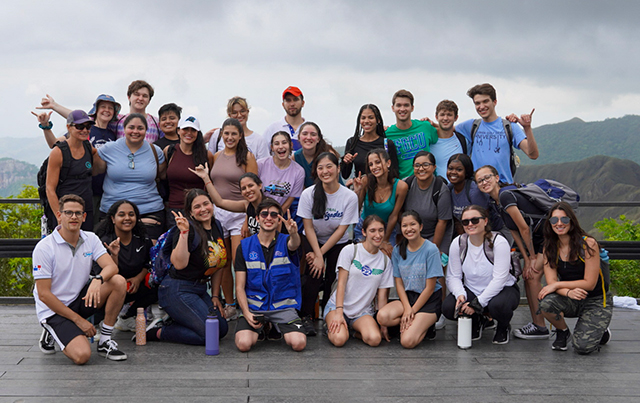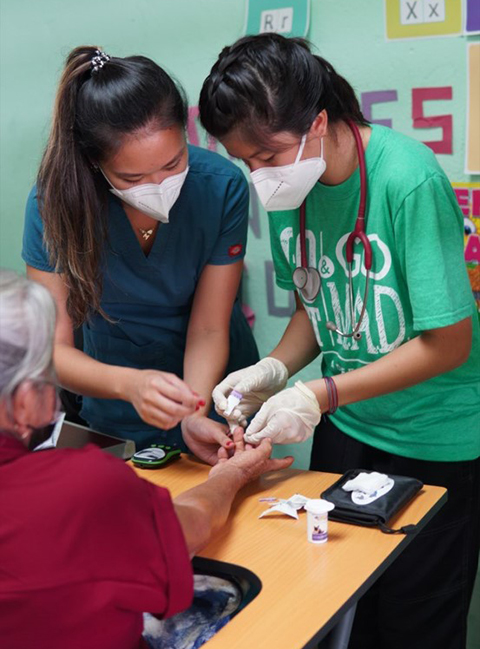
After spring finals ended in May, most students kicked back for a post-semester breather or headed home for summer jobs. Not the 28 Eagles and two faculty members who embarked on a humanitarian mission. Braving chaotic group international travel and steamy Central American temperatures, they brought health care supplies and services to communities in rural Panama that lack such basic human needs.
The Global Medical Brigades’ May 9-15 expedition was no summer vacation abroad. It was the climax of months of training, team building and fundraising. About $60,000 was collected for travel and medical supplies. And members were raring to reboot the troupe’s international excursions.
“With COVID, the brigades kept getting canceled,” said Andrew Parra, a junior psychology major from Estero and vice president of this passionate posse of good doers. “We did some things over Zoom during COVID, but it just wasn’t the same. This year, we were finally given the opportunity to travel abroad and were really excited. There was nothing I would rather have been doing.”
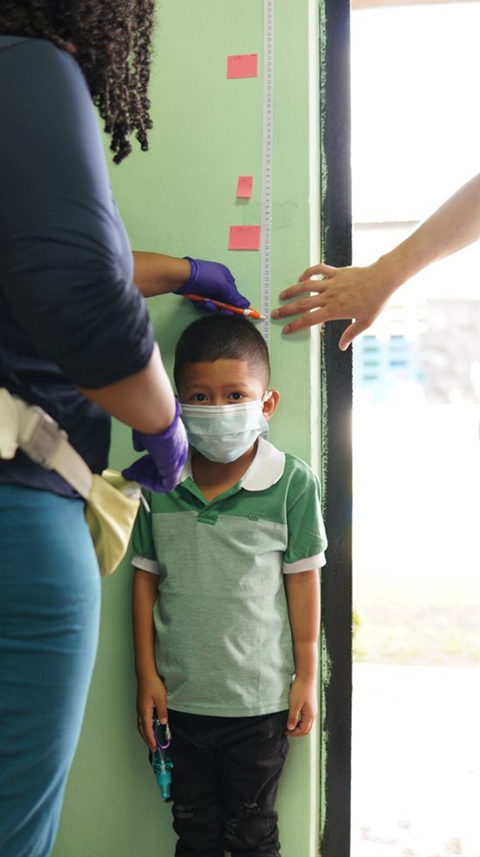
Global Brigades is an international health and sustainable development agency connecting university students with communities in need worldwide. Student volunteers gain professional training by collaborating with host community members to improve and sustain the quality of life in the regions where they serve.
“Every morning, we would wake up at 6 a.m. and drive 45 minutes to a rural area near where we were staying,” said Serena Truong, brigade president, Honors College member and a senior nursing major from Naples. “There were always people already waiting in line in the heat by the time we got there.”
The intrepid team helped about 400 individuals from two weeks to 90 years old at grassroots clinics offering general medical and dental screenings, basic medications and supplies like toothbrushes. Some of the more common conditions they noted: high blood pressure, diabetes, iron deficiency and tooth decay.
Throughout the journey, volunteers worried that COVID-19 would hamper their efforts and mar the experience, but they returned without a single positive case.
As with past trips to Nicaragua and other countries, Panama opened many students’ eyes to living standards most Americans take for granted and disparities in health care around the world. The individuals they serve may not have access to or be able to afford dental care, for instance, so students may need to show them how to use the toothbrushes they hand out.
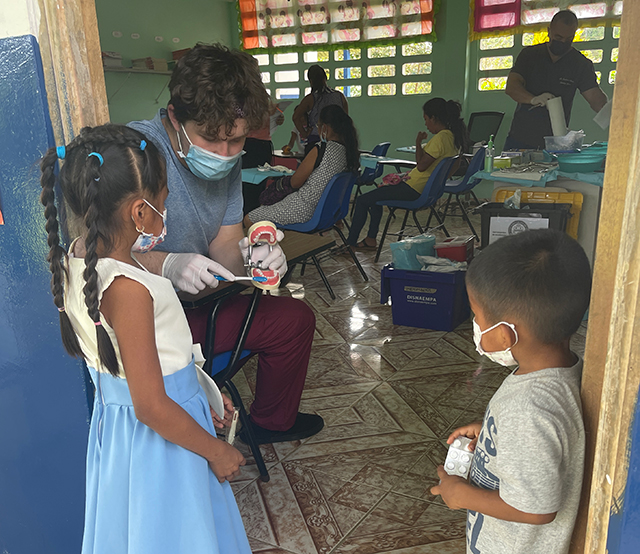
“For many of them, it’s a shock. It’s their first experience of doing medical care in the middle of the jungle,” said their faculty advisor, Courtney Satkoski, an instructor in the Department of Integrated Studies. “They’re using dated equipment. It’s really hot and really rainy. There’s not a lot of modern conveniences. They’re pushed against the wall and have to use critical-thinking skills. At first, you see their apprehension, but two or three days later they’re really leaping in and overcoming the challenges.”
Students also learn the value of teamwork, said Parra, an Honors College member whose long-term goal is to become a neurosurgeon. The brigade welcomes Eagles studying nursing, health sciences, pre-medical disciplines and other healthcare-related fields.
Starting in the fall before the spring trip, members practice taking vital signs, conducting triage and providing basic health care information events such as a pop-up clinic in Immokalee, an underserved community in Collier County.
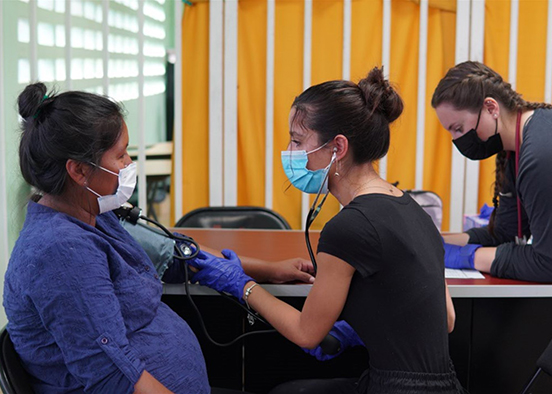
When their hiking boots hit the ground in Panama, students couldn’t count on having hot water – or sometimes running water, period. Even electricity couldn’t be taken for granted. Lee said they traversed mountainous, jungle-like terrain on 12-to 15-hour days, getting by on adrenaline and the dopamine-fueled high of helping people in need.
“There was one day when a hill was so steep, we had to get out of the bus and walk up,” Parra said. “Seeing brigaders grow and form relationships not only with each other but with community members was the most rewarding part for me. It’s a great way to be exposed to the world of medicine and service to others. We help people find their passion and grow as individuals.”
Witnessing that transformation throughout the year is the most rewarding part for Kerry Lee, an associate biology professor who has been involved with Global Medical Brigades at FGCU since 2016. Initially, some students sign on just to collect an experience that looks good on a grad school application or CV, she said.
“Then you see a student who really grabs a hold of it and makes it their own,” Lee said. “They feel pride in the end. It hits you in the heart.”
- Learn more about Global Medical Brigades
